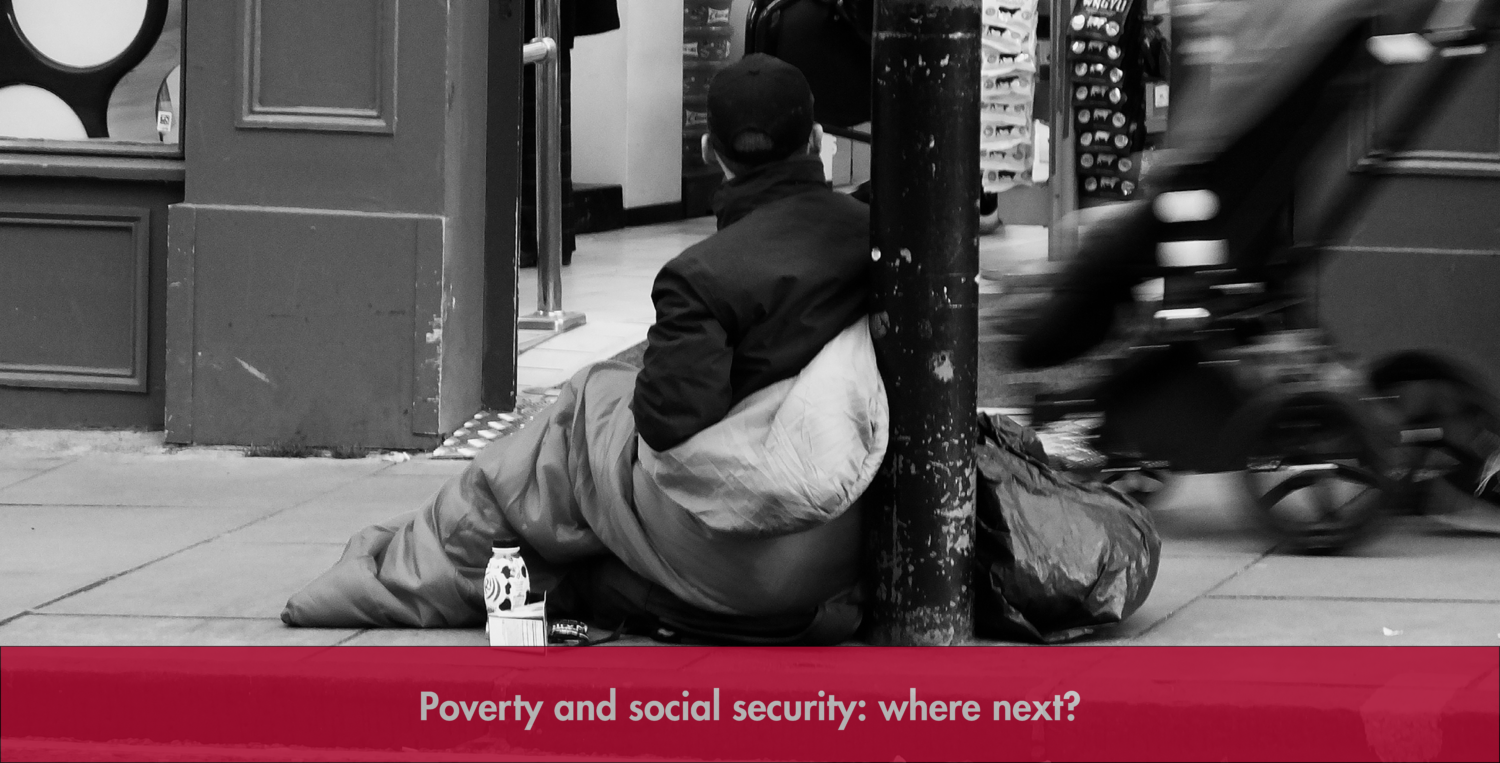Poverty and social security: where next?
What should a future government do to mend social security and tackle poverty in the decade ahead?

The UK is scarred by poverty and our social security system is in crisis. At the start of the 2020s, 15 million people are on course to live in poverty. So where do we go from here?
In this series we ask how a future government should set about mending social security and tackling poverty over the next 10 years. We need a long-term plan that considers what we want to achieve in the coming years – and what that should mean for manifesto promises at the next election.
These articles are part of a wider project examining poverty and social security in the decade ahead, which also includes listening events with people living in poverty, a half-day summit and a Fabian Society research report. The project is a partnership with Age UK, the Children’s Society, Crisis, the Joseph Rowntree Foundation and the TUC.
Insight
-
Where next?
Andrew Harrop introduces our blog series on what a future government should do to mend our social security system and tackle poverty in the decade ahead.
-
Causes, not consequences
John Veit-Wilson says abolishing the causes of poverty will not cost the country more money than it has or can afford, but political will is essential.
-
A female face
Mary-Ann Stephenson looks at how our social security system could be different if it were based around the needs of women living in poverty.
-
Missing morality
Reverend Paul Nicolson argues any effective social security system must first be guided by moral principles.
-
A timely lesson
Raji Hunjan and Marc Francis call on Labour to remember the principled stand George Lansbury and his colleagues made during the Poplar rates rebellion and argue for the renationalisation of our social security system.
-
Leaving no one behind
Marsha de Cordova MP argues we must transform our social security system into one which enables disabled people to participate fully and equally in society.
-
Commanding public confidence
Claire Ainsley argues to combat declining public support for social security, our system must be designed in a way that recognises that we all have a stake in its future.
-
Smooth transitions
Christopher Brooks and Sally West point to rising pensioner poverty levels and argue that our social security system and other areas of public policy need urgent reform.
-
Paths to universality
Ruth Lister argues our social security system gets the balance wrong between means-testing, universalism and contribution. Could basic income provide a way forward?
-
What works?
Anjum Klair and Kate Bell argue social security needs to do less of the heavy lifting to tackle in-work poverty.
-
Major repairs
Stephen Timms MP says the hardship inflicted by universal credit does not arise from its basic principles. Labour can turn this new system into a tool for fighting poverty.
-
The best investment
Louisa McGeehan says child poverty is not inevitable. To prevent it, a first priority for government must be reinvesting in children.
-
Rising pressures
Since 2010 rough sleeping in England has increased by 165 per cent, despite a small drop of 2 per cent in the last 12 months. Jasmine Basran looks at how social security must change to support the delivery of decent and affordable housing for all.
-
Fair for the future
Sam Royston argues few questions in the social security system matter more than how benefits increase over time, but there is currently very little consistency or coherence in how this is calculated. We need a better approach.
-
Bold and ambitious
Kate Green MP argues the world is changing rapidly. If our social security system is to protect us, we need to reimagine its purpose.
-
Breaking ground
Sally Witcher argues Scotland’s new social security system teaches Westminster not only the value of dignity and respect, but also that it’s time for a new kind of politics.
-
Hard truths
Mike Amesbury MP says jobcentres are crumbling under this Conservative government. A radical overhaul could transform them into genuine community hubs that offer real support, not sanctions.
-
The big picture
In the final blog, Fran Bennett considers the key challenges and directions for change.




